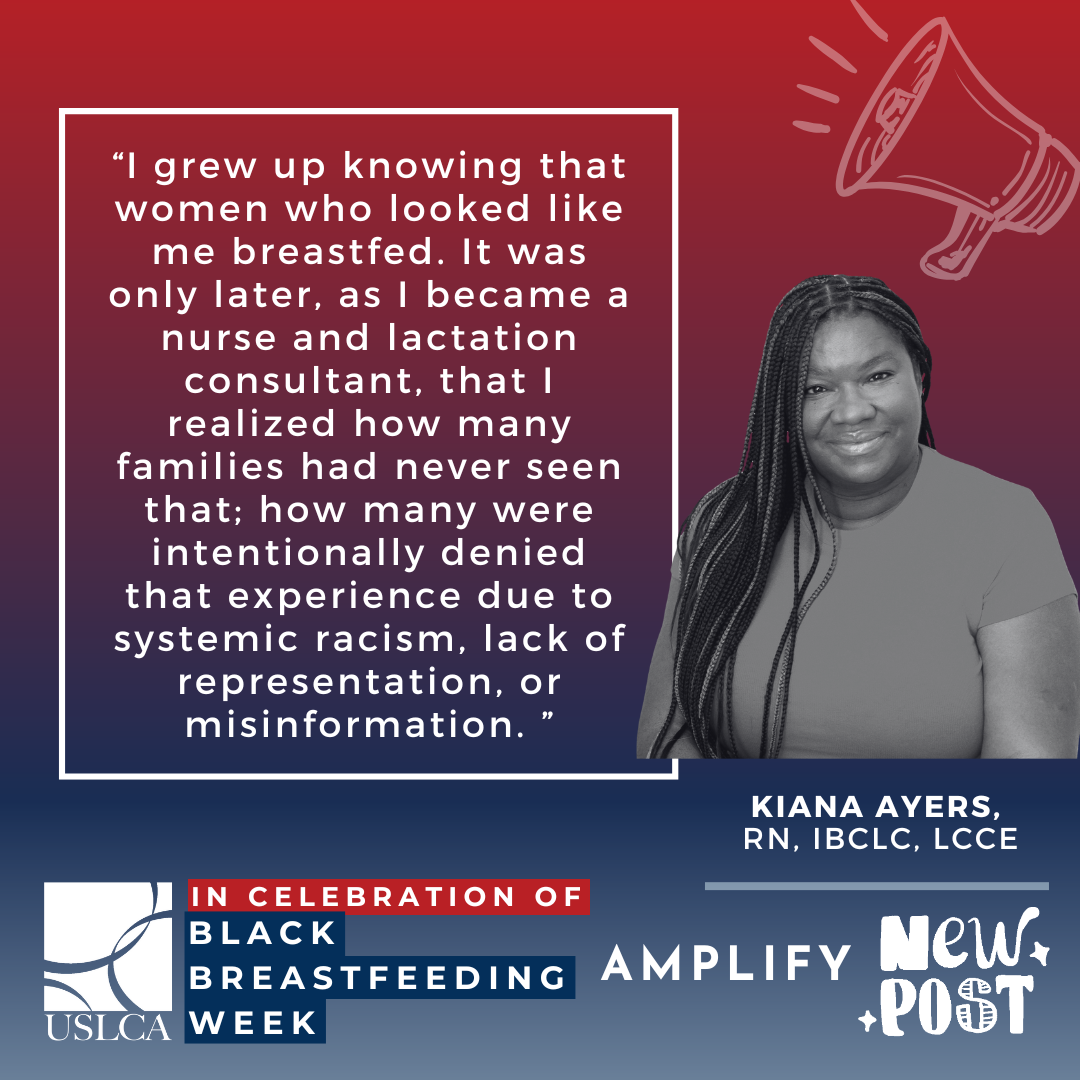Lactation Professionals’ Words and Actions Have Lasting Impact.
By: Lo Nigrosh, IBCLC
 “Are you really a mom if you didn’t want to fist fight the LC department?” This was a comment I got on Tiktok from someone when I asked how many pieces of conflicting advice people got about breastfeeding while in the postpartum recovery area of the hospital. Sadly, this response did not surprise me even though I know that all of us who enter the field of lactation do so because we desperately want to decrease stress and increase bonding and feelings of self efficacy for families learning to feed their babies human milk.
“Are you really a mom if you didn’t want to fist fight the LC department?” This was a comment I got on Tiktok from someone when I asked how many pieces of conflicting advice people got about breastfeeding while in the postpartum recovery area of the hospital. Sadly, this response did not surprise me even though I know that all of us who enter the field of lactation do so because we desperately want to decrease stress and increase bonding and feelings of self efficacy for families learning to feed their babies human milk.
Why didn’t this response surprise me? Because I’ve had the opportunity to speak with so many people about their lactation journeys from a place of curiosity and neutrality as the host of a podcast called The Milk Making Minutes that explores baby feeding struggles and triumphs through the lens of systemic medical and cultural barriers. And for every guest of the show who speaks very highly of the lactation professionals who helped them build confidence and overcome challenges so that they are able to meet their human milk feeding goals, there is also a guest (or 2 or 3) who has experienced someone who didn’t listen enough, or who touched them without consent, or who made assumptions about their goals, or who told them their latched looked “fine” when it didn’t feel great at all.
And these actions have lasting impact. I have interviewed people who are still in the thick of the postpartum period, and I have interviewed a 92 year old woman who fed babies over 60 years ago. And all of them remember whether or not they felt supported or dismissed by care providers at the hospital and at the pediatrician’s office. As is commonly said, one bad apple spoils the bunch. And so many people decide they will consult Facebook Groups, or their friends, or their pediatricians to get lactation advice when they are facing serious breastfeeding difficulties because they had a bad experience with a lactation consultant who was abrupt or made them feel as if they didn’t know what they were doing. I know that none of us have this intention. But to the person receiving the advice from the lactation professional, intention is not what matters.
I must admit that as a newer IBCLC in private practice (who had been a CLC working in very cozy settings previously), I commonly hear similar complaints while sitting for 60-90 long minutes on a cozy couch in someone’s home with no interruptions from other care staff, and I began to form biases about hospital based lactation care. So this year I decided to meet some community needs and work per diem in a very busy teaching hospital in my area two days a month so I could face my biases head on and get an understanding of what hospital based lactation care was all about. I must admit that I was surprised by how much I have learned from the other amazing IBCLCs that I work with in the hospital, and have been so happy to gain experience in immediate postpartum lactation education and care. I’ve had to learn from other IBCLCs when to scale back on education– my patients JUST HAD A BABY and are very tired. They are not going to process everything. So now, when people tell me in my private practice that they were never told this or that in the hospital, I have more compassion for the priority setting that those IBCLCs are doing and that I have learned to do as well.
However, I do stand by my statement that our words and actions have lasting impact– and all of us should keep this front and center with every patient and client interaction. Even if we can’t fully solve a lactation difficulty in the limited time we have with someone, will our interaction with them make them feel heard, listened to, and autonomous? Will they walk away from a consultation with us feeling as if lactation professionals are on THEIR side and that they are people they should seek out for further assistance if needed? OR, will they resist getting the care they need and deserve, and discourage others from doing so because we rushed, because we gave standard advice, because we didn’t view them as an individual with individual needs and because we forgot that although we have seen this thousands of times, they have not.
I do have some ideas that I think can have positive lasting impacts, even in the busiest of settings:
–I have found that when I am able, I like to sit down in my patients’ rooms in the hospital. I know there are not always very many places to sit, but I find this makes the visit feel less clinical and more personable. It also shows that I am not rushed, and I am here for you and your baby right now at this moment.
–I’m sure to let me know that I am not easily offended and that they are in charge. They know their body and baby best, and everything I offer is a suggestion. If they don’t want to do it, they can tell me, I would much rather be told no– than to push something they don’t want to do.
–I always start by asking what has been going well, and what hasn’t. I give the patient time to talk and process before I jump in with my agenda. If there is a partner in the room I am sure to address that person as well and get their thoughts too.
–If I am going to observe a feeding, I am sure to ask which positions they have tried and feel most comfortable with. I ask if they have enjoyed those positions. I am finding that sometimes various positions are being thrust on patients and they aren’t feeling much autonomy and don’t realize they can choose.
–I let them know that I do my best not to touch them during the observation because they will need to do it once I am gone. If they want or need help they can ask me to be more hands or, or if I feel my touch might benefit them I will always ask and they have every right to say no.
–If someone starts to feel overwhelmed, I acknowledge how hard what they are doing is. I let them know that of course they are overwhelmed and I ask if they need a break. I give them an opportunity to just hold baby skin-to-skin and to regulate themselves and baby. I ask what feelings are coming up. Often it is a feeling of failure. I always assure them that they are not failing, and that there is a learning curve for them and for the baby.
–I remind them their baby loves them and adores them. I point out the way their baby calms just by being held by them. I remind them what a good job they are doing talking to baby, and holding baby and cuddling baby and remaining calm even when baby is upset.
–I’ve heard time and again on the podcast that as soon as breastfeeding wasn’t going well, that’s when the doubt set in that they were not a good parent. I want to remind them that they are.
If we can focus on our counseling skills in these moments when we don’t have as much time with our patients, and remind ourselves that sometimes it is less about the milk and more about helping the person in front of us to feel good about themselves as a parent, that will go along way to helping them feel good about lactation professionals. This will have the positive lasting impact we all desire; so that in those times of desperation when breastfeeding is not going well, people will reach out to lactation professionals for the help they deserve and that we want to give them.
About Lo:
It was my own intense struggle to breastfeed my oldest 10 years ago that led me to birth and lactation work but it was listening to the struggles of so many others that has kept me here. I first became a CLC, then a peer counselor with Breastfeeding USA while I slowly chipped away at all of the requirements. I had the privilege of working as CLC for 4 years working for a local insurance covered breast pump distributor that also provided free breastfeeding counseling and education to all of their clients while I worked towards the requirements to sit for the IBCLE.
As an IBCLC I focus on helping each client feel proud of every ounce they make, and to recognize each hurdle they have unfairly faced while trying to feed their babies. I also host The Milk Making Minutes Podcast which explores baby feeding struggles and triumphs through the lens of systemic medical and cultural barriers so that every listener understands that their bodies did not fail and their successes really were the miracles they felt them to be.



